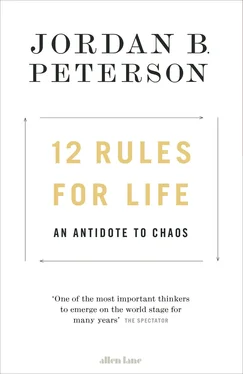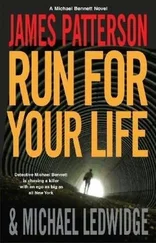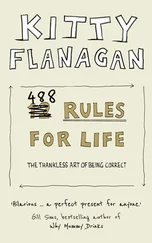Unfortunately, the worst isn’t over—for Man or Beast. First, God curses the serpent, telling him that he will now have to slither around, legless, forever in peril of being stomped on by angry humans. Second, He tells the woman that she will now bring forth children in sorrow, and desire an unworthy, sometimes resentful man, who will in consequence lord her biological fate over her, permanently. What might this mean? It could just mean that God is a patriarchal tyrant, as politically motivated interpretations of the ancient story insist. I think it’s—merely descriptive. Merely. And here is why: As human beings evolved, the brains that eventually gave rise to self-consciousness expanded tremendously. This produced an evolutionary arms race between fetal head and female pelvis. [18056] Other explanations exist: Dunsworth, H. M., Warrener, A. G., Deacon, T., Ellison, P. T., & Pontzer, H. (2012). “Metabolic hypothesis for human altriciality.” Proceedings of the National Academy of Sciences of the United States of America, 109, 15212–15216.
The female graciously widened her hips, almost to the point where running would no longer be possible. The baby, for his part, allowed himself to be born more than a year early, compared to other mammals of his size, and evolved a semi-collapsible head. [18057] Heidel, A. (1963). The Babylonian Genesis: The story of the creation . Chicago: University of Chicago Press.
This was and is a painful adjustment for both. The essentially fetal baby is almost completely dependent on his mother for everything during that first year. The programmability of his massive brain means that he must be trained until he is eighteen (or thirty) before being pushed out of the nest. This is to say nothing of the woman’s consequential pain in childbirth, and high risk of death for mother and infant alike. This all means that women pay a high price for pregnancy and child-rearing, particularly in the early stages, and that one of the inevitable consequences is increased dependence upon the sometimes unreliable and always problematic good graces of men.
After God tells Eve what is going to happen, now that she has awakened, He turns to Adam—who, along with his male descendants, doesn’t get off any easier. God says something akin to this: “Man, because you attended to the woman, your eyes have been opened. Your godlike vision, granted to you by snake, fruit and lover, allows you to see far, even into the future. But those who see into the future can also eternally see trouble coming, and must then prepare for all contingencies and possibilities. To do that, you will have to eternally sacrifice the present for the future. You must put aside pleasure for security. In short: you will have to work. And it’s going to be difficult. I hope you’re fond of thorns and thistles, because you’re going to grow a lot of them.”
And then God banishes the first man and the first woman from Paradise, out of infancy, out of the unconscious animal world, into the horrors of history itself. And then He puts cherubim and a flaming sword at the gate of Eden, just to stop them from eating the Fruit of the Tree of Life. That, in particular, appears rather mean-spirited. Why not just make the poor humans immortal, right away? Particularly if that is your plan for the ultimate future, anyway, as the story goes? But who would dare to question God?
Perhaps Heaven is something you must build, and immortality something you must earn.
And so we return to our original query: Why would someone buy prescription medication for his dog, and then so carefully administer it, when he would not do the same for himself? Now you have the answer, derived from one of the foundational texts of mankind. Why should anyone take care of anything as naked, ugly, ashamed, frightened, worthless, cowardly, resentful, defensive and accusatory as a descendant of Adam? Even if that thing, that being, is himself? And I do not mean at all to exclude women with this phrasing.
All the reasons we have discussed so far for taking a dim view of humanity are applicable to others, as much as to the self. They’re generalizations about human nature; nothing more specific. But you know so much more about yourself. You’re bad enough, as other people know you. But only you know the full range of your secret transgressions, insufficiencies and inadequacies. No one is more familiar than you with all the ways your mind and body are flawed. No one has more reason to hold you in contempt, to see you as pathetic—and by withholding something that might do you good, you can punish yourself for all your failings. A dog, a harmless, innocent, unselfconscious dog, is clearly more deserving.
But if you are not yet convinced, let us consider another vital issue. Order, chaos, life, death, sin, vision, work and suffering: that is not enough for the authors of Genesis, nor for humanity itself. The story continues, in all its catastrophe and tragedy, and the people involved (that’s us) must contend with yet another painful awakening. We are next fated to contemplate morality itself.
When their eyes are opened, Adam and Eve realize more than just their nakedness and the necessity of toil. They also come to know Good and Evil (the serpent says, referring to the fruit, “For God doth know that in the day ye eat thereof, then your eyes shall be opened, and ye shall be as gods, knowing good and evil”). What could that possibly mean? What could be left to explore and relate, after the vast ground already covered? Well, simple context indicates that it must have something to do with gardens, snakes, disobedience, fruit, sexuality and nakedness. It was the last item—nakedness—that finally clued me in. It took years.
Dogs are predators. So are cats. They kill things and eat them. It’s not pretty. But we’ll take them as pets and care for them, and give them their medication when they’re sick, regardless. Why? They’re predators, but it’s just their nature. They do not bear responsibility for it. They’re hungry, not evil. They don’t have the presence of mind, the creativity—and, above all, the self-consciousness—necessary for the inspired cruelty of man.
Why not? It’s simple. Unlike us, predators have no comprehension of their fundamental weakness, their fundamental vulnerability, their own subjugation to pain and death. But we know exactly how and where we can be hurt, and why. That is as good a definition as any of self-consciousness. We are aware of our own defencelessness, finitude and mortality. We can feel pain, and self-disgust, and shame, and horror, and we know it. We know what makes us suffer. We know how dread and pain can be inflicted on us—and that means we know exactly how to inflict it on others. We know how we are naked, and how that nakedness can be exploited—and that means we know how others are naked, and how they can be exploited.
We can terrify other people, consciously. We can hurt and humiliate them for faults we understand only too well. We can torture them—literally—slowly, artfully and terribly. That’s far more than predation. That’s a qualitative shift in understanding. That’s a cataclysm as large as the development of self-consciousness itself. That’s the entry of the knowledge of Good and Evil into the world. That’s a second as-yet-unhealed fracture in the structure of Existence. That’s the transformation of Being itself into a moral endeavour—all attendant on the development of sophisticated self-consciousness.
Only man could conceive of the rack, the iron maiden and the thumbscrew. Only man will inflict suffering for the sake of suffering. That is the best definition of evil I have been able to formulate. Animals can’t manage that, but humans, with their excruciating, semi-divine capacities, most certainly can. And with this realization we have well-nigh full legitimization of the idea, very unpopular in modern intellectual circles, of Original Sin. And who would dare to say that there was no element of voluntary choice in our evolutionary, individual and theological transformation? Our ancestors chose their sexual partners, and they selected for—consciousness? And self-consciousness? And moral knowledge? And who can deny the sense of existential guilt that pervades human experience? And who could avoid noting that without that guilt—that sense of inbuilt corruption and capacity for wrongdoing—a man is one step from psychopathy?
Читать дальше












